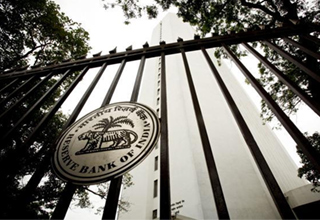RBI asks coop banks to work for artisans, SMEs
Updated: Jun 11, 2014 11:18:58am

In semi-urban and rural areas, there are a number of unbanked and under-banked districts inhabited by people like artisans, migrant labour, small businessmen and retailers, etc, RBI has said adding that the Urban Cooperative Banks (UCBs) can take a lead in bringing these people into the ambit of banking.
While addressing the conference of UCBs on New-Gen Urban Cooperative Banks - Some Musings, here on Sunday, RBI Deputy Governor, R Gandhi said that UCBs are, to some extent, already into financial inclusion as their client profile mainly consists of priority sector segments viz. small business establishments, SSI, retail traders, self-employed etc, who do not get easy access to commercial banks.
“There still remains, however, a huge hidden potential to be tapped, given the large number of small urban co-operative banks. UCBs need to capitalise on their advantage and reap the business opportunity,” he said.
Gandhi said that, “In semi-urban and rural areas, there are a number of unbanked and under-banked districts inhabited by people like artisans, migrant labour, small businessmen and retailers, etc. These people find it difficult to join the formal financial sector. UCBs can take a lead in bringing these people into the ambit of banking.”
“Our next issue for deliberation could be the important expectation from Government, RBI and people in general from the banks, i.e. promoting financial inclusion,” he said.
The organizational structure, local clientele and easy access are UCBs’ strengths in this regard. RBI has taken a number of measures in this direction for UCBs by prescribing introduction of No-frills account with nil or low minimum balance, relaxation of Know Your Customer (KYC) requirements for small accounts, liberalising norms for opening of new branches and off-site ATMs and permitting use of Business Correspondents (BCs) and Business Facilitators (BFs), etc, the RBI Deputy Governor said.
“UCBs should re-design their business model in this regard and integrate their financial inclusion plan into their annual business plans. UCBs should give wide publicity to their services to connect with large population segments. It is also important that the service provided should be at an affordable cost and here technology will play a big role,” he said.
Analysing some of the best global practices in cooperative banking and their implications for next- gen cooperative banks in India, RBI Deputy Governor said that in Italy, France, Germany and Netherlands where co-operative banks’ market share in loans range between 25 per cent and 45 per cent, SMEs represent between 20 per cent and 50 per cent of the total client portfolio of co-operative banks.
“They are able to face the challenges of the new post crisis environment because their business model responds to the present needs and expectations.” (KNN/SD)











